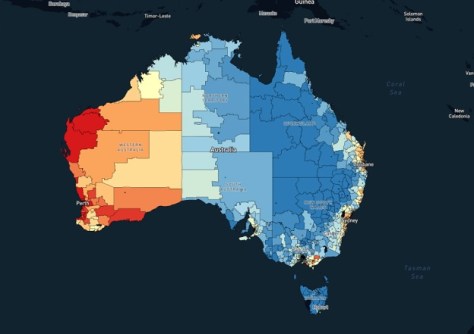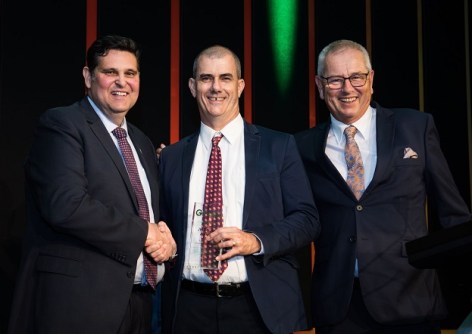
Cancer Council Queensland’s Australian Cancer Atlas 2.0 has been recognised with two top honours at the recent Geospatial Excellence Awards.
The online tool depicts at detailed scale, how different areas across the country are faring when it comes to cancer diagnosis rates, participation in national cancer screening programs and five-year cancer survival.
The innovative, interactive online project, which was developed in partnership with QUT and launched formally last year, was awarded the Oceania Technical Excellence Award and J. K. Barrie Award for Overall Excellence at the Awards ceremony in Brisbane last week.
The Australian Cancer Atlas was created by applying Bayesian spatial models on cancer registry and other data and demonstrates that the impact of cancer varies substantially depending on where Australians live.
Geographical areas are defined using Statistical Area 2 (SA2), which is defined by the Australian Bureau of Statistics. The Atlas groups these SA2s into broader regions, including remoteness areas, area-level socio-economic groups, states/territories and capital city areas, to visualise how rates vary within these broader regions.
A consistent pattern revealed within the Atlas is that Australians living in regional and remote areas experience poorer survival than those living in urban areas.

“The Australian Cancer Atlas is already making a real difference — it’s helping researchers, health services, and policymakers identify cancer disparities across Australia, and guide research priorities. It has become a powerful tool for public health planning and community engagement,” said Professor Peter Baade of the Cancer Council Queensland.
“To have the Atlas’ technical and overall excellence recognised by industry experts is powerful validation of its quality and impact.
“These awards give us a strong foundation to strengthen engagement with communities, industry, and government, and expand our research partnerships to better understand — and ultimately reduce — geographical disparities in cancer outcomes.”













